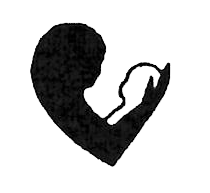What you need to know about the Mumps virus
/The recent Mumps outbreak has been a hot topic during the last month! Here is what you need to know!
The Nebraska Department of Health and Human Services has confirmed 23 cases of Mump related to an outbreak at Midland University in Fremont, Nebraska. New cases have been reported in Cass, Douglas, Dodge, Hall, Madison, and Platte counties. So far in 2016, the CDC has confirmed 1,148 cases in the United States which far exceeds the number of total cases in 2015.
Mumps is a virus that is caused from the paramyxovirus. Signs and symptoms of mumps include pain, tenderness and swelling of the parotid salivary glands in your cheek and jaw area. Other symptoms include a low-grade fever, joint pain, fatigue and headache. The mumps virus is spread through contact with respiratory secretions and the risk of transmission increases with longer and closer contact with an infected person.
Complications from the virus include orchitis (inflammation of the testicles) which could lead to sterility of a male. Rare complications include mastitis (inflammation of the mammary gland in the breast), oophoritis (inflammation of the ovary), deafness, meningitis and encephalitis.
During pregnancy an active infection can cause an increased risk of complications, especially in the early months of pregnancy. Infants and children who have not had the MMR vaccine are also at increased risk.
There is no treatment for Mumps except supportive care for pain and fever. It is important for symptomatic people be in isolation to prevent the spread of the virus. The best way to prevent is through vaccination with the MMR (Measles, Mumps, Rubella) vaccine and thorough handwashing. The MMR vaccine prevents most, but not all, cases of mumps and complications from the virus.
If you have been exposed to someone with mumps, or have signs or symptoms, contact your healthcare provider for evaluation.
For more information visit:
http://www.cdc.gov/mumps/about/index.html


